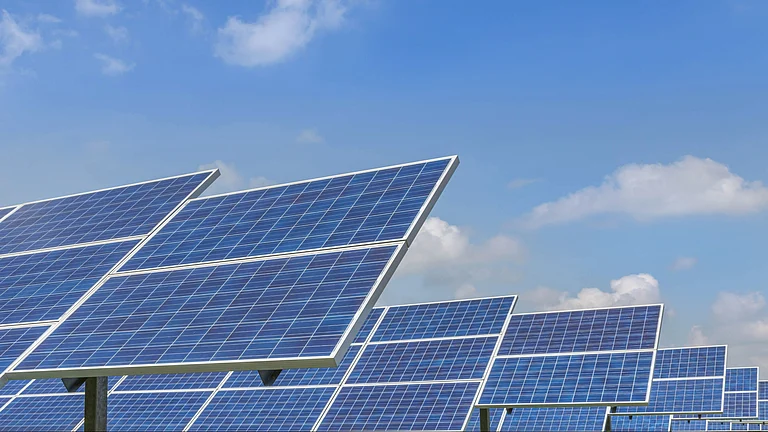Shares of Premier Energies and Waaree Energies, nosedived up to 11% on May 23, mirroring the sharp selloff across US solar and clean energy peers after the US passed a tax bill backed by President Trump, to accelerate the phasing out of clean energy subsidies.
The new tax bill proposes rolling back key provisions undertaken by the Biden Administration’s Inflation Reduction Act. The bill targets to cut down on several clean energy subsidies, including grants for reducing air pollution and greenhouse gas emissions, as well as incentives for purchasing electric heavy-duty vehicles.
Not just that, the new bill also plans to pull away the 30% federal tax credit granted to taxpayers who chose to install solar rooftop systems. With the bill narrowly passed by the US House of Representatives by a 215-214 margin, it will now head to the senate for further clearance.
Concerns over a proposed US tax bill have dampened sentiment for Indian solar exporters like Waaree Energies and Premier Energies, both of which generate a significant share of their revenues from overseas markets. The potential rollback of key clean energy incentives in the US poses a fresh risk for these companies, especially given their heavy exposure to international demand.
As of Q1 FY26, Waaree Energies reported an order book worth nearly Rs 47,000 crore for 25 GW of capacity, with around 57% linked to exports. Despite the uncertainty, the company posted a solid 34% year-on-year rise in net profit to Rs 619 crore, while revenue grew by 36.4% to Rs 4,003.9 crore.
Premier Energies delivered an even stronger performance, with net profit soaring 167% year-on-year to Rs 278 crore, driven by a 43.8% surge in sales to Rs 1,621 crore. Its current order book stands at Rs 8,400 crore for 5.3 GW, with 73% focused on solar modules and 27% on cells, products that could be directly affected by shifts in US policy.
Though the bill is yet to clear the US Senate, the possibility of scaled-back climate support has already sparked concern. For Indian solar firms with growing global ambitions, the outcome could be a decisive turning point.
































